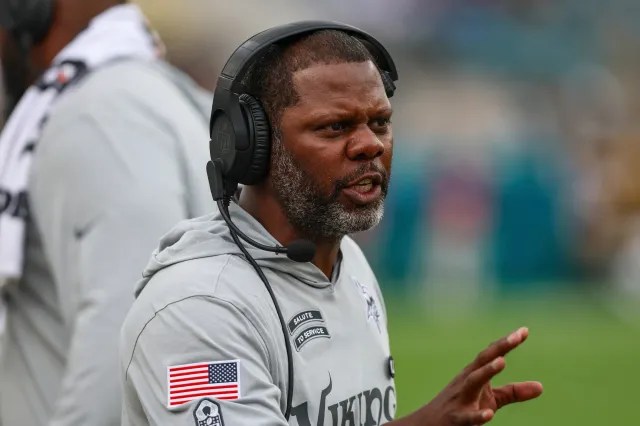 Vanessa Bertrand always intended to go to a big-name, out-of-state school. She made the decision as a little girl, watching Cliff Huxtable on a rerun of The Cosby Show argue the merits of Princeton, Yale, Howard, and his father’s favored alma mater, the fictional Hillman College. The conversation that unfolded on that episode of the 1980s sitcom—a show whose run ended before she was even born—left a deep impression on the child, driving her to research universities before even reaching high school. And at 18, it informed the decisions she made about college applications and the way she ranked the most desirable universities.
Vanessa Bertrand always intended to go to a big-name, out-of-state school. She made the decision as a little girl, watching Cliff Huxtable on a rerun of The Cosby Show argue the merits of Princeton, Yale, Howard, and his father’s favored alma mater, the fictional Hillman College. The conversation that unfolded on that episode of the 1980s sitcom—a show whose run ended before she was even born—left a deep impression on the child, driving her to research universities before even reaching high school. And at 18, it informed the decisions she made about college applications and the way she ranked the most desirable universities.
“A school’s name opens more doors than many others,” Bertrand explains. “Not only did college open doors, but the school’s name did. So if you have Yale on your resume, it felt like an automatic yes, you’ll get a certain job. So I felt like Ivy Leagues would help me out more than certain colleges would.”
Going to college was never in question for Bertrand. Her father, Roland, insisted on it, drilling into Vanessa and her four siblings a belief that education would provide a path out of the blue-collar Boston neighborhood of Hyde Park. “A week before school, he would have us only eating fish since fish is good for the brain,” Bertrand says. “We would have this juice—it would say brain juice, I think it was a V8.”
And the night before the first day, her father would deliver a speech to the family about education as the starting point of one’s life. “You are doing this for yourself, no one else,” her father would say. “Just because you are doing well, never feel like you are owed anything. You have to go out and get it.”
Bertrand’s parents embody that advice. Haitian immigrants, they each work three jobs—her father at gas stations and her mother, Dieula Cadet, caring for the elderly. They put in long hours—evenings, night shifts, and weekends—to support their family. Neither has a college degree. Their children, they determined, would.
“Not only do we have to go [to college], we want to go because we feel like without it, it is a dead end,” Bertrand says.
So Bertrand packed her high school career with Advanced Placement classes in subjects such as biology and calculus, which she loved and easily excelled in, and threaded in as many extracurricular activities as possible. She served on tobacco-prevention and college-preparation clubs and on the debate team, and she played power forward for the Raiders, her high school’s basketball squad.
Her effort paid off. Bertrand graduated as salutatorian with a 4.23 grade-point average and an all-around record that exemplifies the type of high school career favored by college admissions offices.
Meet Dan, the reality-check counselor
While a college education was always her goal, like many of the more than 10 million who apply every year, Bertrand didn’t spend much time contemplating what it would cost or how much would be wise and responsible to borrow. That changed in October of her senior year when she came across Dan Mendelsohn, a spry, bespectacled financial-aid adviser from UAspire, a nonprofit formerly known as ACCESS.
Mendelsohn, fresh out of college himself, planted the first seeds of financial prudence for Bertrand.
“There’s a lot of rhetoric about, ‘You can go wherever you want. You can do whatever you want to do,’ and that is wonderful stuff to say, and very empowering, but you also need to be thinking about the financial side. And so many people aren’t,” Mendelsohn said.
Although he prefers to take up a whole 45-minute class when he can, his first encounter with Bertrand was during a condensed 10-minute talk to her class of 15, urging the students to start thinking about how much college costs as they determine which applications to prepare.
“A huge part of it is in the beginning of the year, setting up expectations that it’s not just about admissions, but it’s what you can pay for, so they kind of know the conversation is coming, even though it is not at the forefront of their mind,” Mendelsohn says.
He has his work cut out trying to track down hundreds of seniors every day at any of five different Boston high schools that vary vastly in socioeconomic background, academic culture, and school resources.
Mendelsohn’s carefully chosen words, attentive listening, and confident posture during his counseling sessions make him at once disarming and knowledgeable beyond his 23 years, helping him develop the student trust necessary to make an impact. “I have to prove to students that I’m looking out for their best interest from the start,” he says. “I’m not trying to push an agenda on them. I’m trying to get to know them and see where their needs are and give them the resources they need in order to be where they want to be.”
That October, in 2011, he urged Bertrand’s class to get a head start on financial planning, broaden their application strategy to include at least one “financial safety net” school —such as a state university or community college—and begin searching for scholarships and other financial aid. read more..



